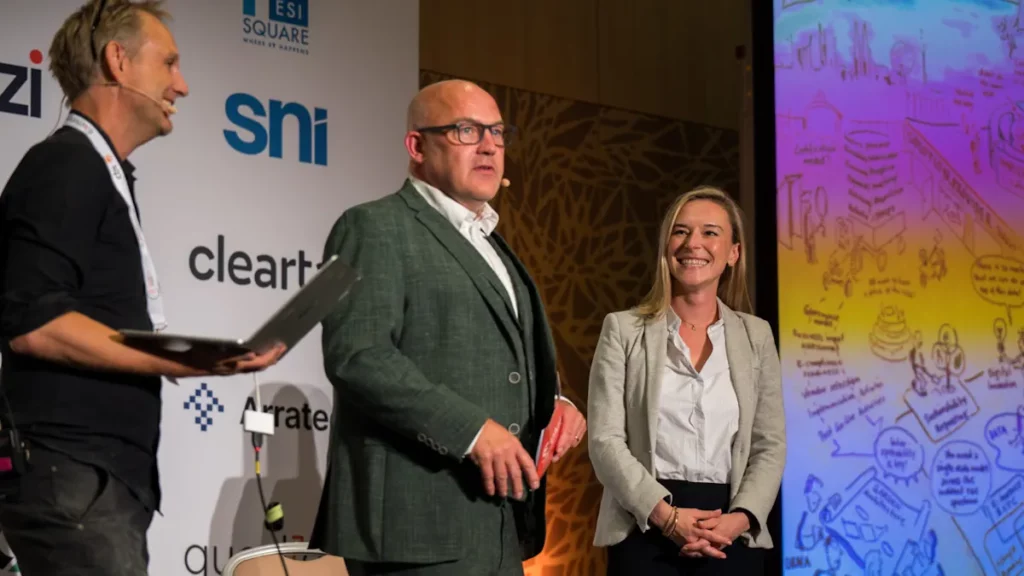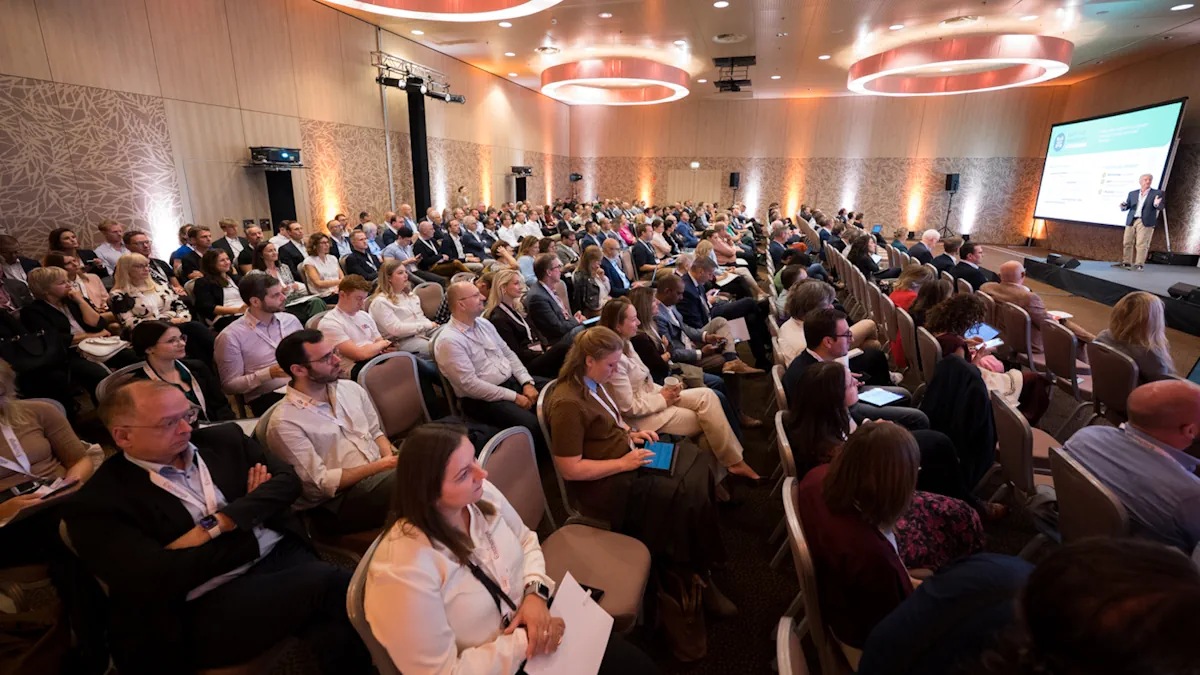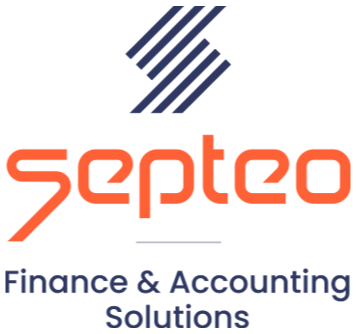Over three days, this year’s European edition brought together nearly 300 participants from 31 countries: experts in e-invoicing, indirect tax, e-reporting, IT, and more!
EU government representatives, business associations, end users, service providers, and independent specialists were all present.
With over 50 speakers across 40+ sessions, workshops, and roundtables, the event offered a comprehensive look at the latest developments, projects, and products shaping the e-invoicing landscape.

Peppol’s continued growth
Driven by upcoming mandates in countries such as France and Belgium, the Peppol network is entering a phase of rapid expansion. Soon, 1.2 million Belgian companies and 7 million French companies will be onboarded, and the number of Members and Access Points is steadily growing.
The Peppol ViDA pilot is progressing, involving 20 tax authorities and over 80 service providers. Two dedicated workshops were co-presented by Michael Walther, co-founder of The Invoicing Hub and an active member of the OpenPeppol project team.
As OpenPeppol’s Secretary General André Hoddevik outlined, the growth is also pushing structural changes with deep technological impacts: certificate upgrades, possible ISO 27001 requirements for Access Points, and later the new Peppol BIS 4.0 (PINT-EU) format.
Still, as Nazar Paradivskyy (Thomson Reuters / Pagero) warned, we should not expect a “final” standard. But 4- and 5-corner networks like Peppol or DBNAlliance should become backbones of e-invoicing adoption by providing decentralized yet unified infrastructure for electronic document delivery.
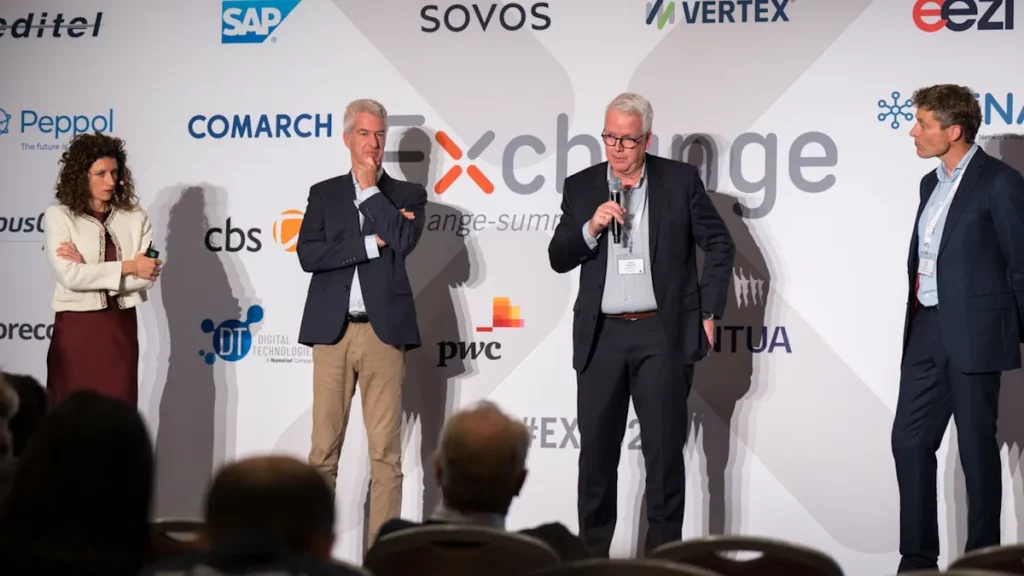
Country updates: Belgium, France, Germany, Poland
Several sessions of the conference were dedicated to first-hand updates from officials of four EU countries currently implementing B2B e-invoicing mandates:
- Belgium: Registrations on Peppol are below initial expectations, but steadily rising. Authorities have identified 8 core reasons that are delaying adoption, and are working towards addressing those main obstacles
- France: Details on the complex mandate were clarified, with the announcement of a possible 3-month grace period between September and December 2026.
- Germany: E-invoice acceptance is mandatory nationwide since the beginning of 2025, but adoption remains very low. Lack of invoice delivery requirements means even emailed documents qualify, which completely hinders many of the advantages of automation. German authorities are working to provide further guidelines for proper e-invoicing implementation in the country, such as the use of Peppol
- Poland: The KSeF central exchange platform remains the chosen model, even though it does not align with ViDA. Polish authorities are fully aware of this but continue to stand by their central platform approach, while also considering future Peppol integration. Furthermore, KSeF 2.0 has been live for testing since September 30, with new public resources now available.
Check out our Country Profiles & news for more detailed information: Belgium / France / Germany / Poland
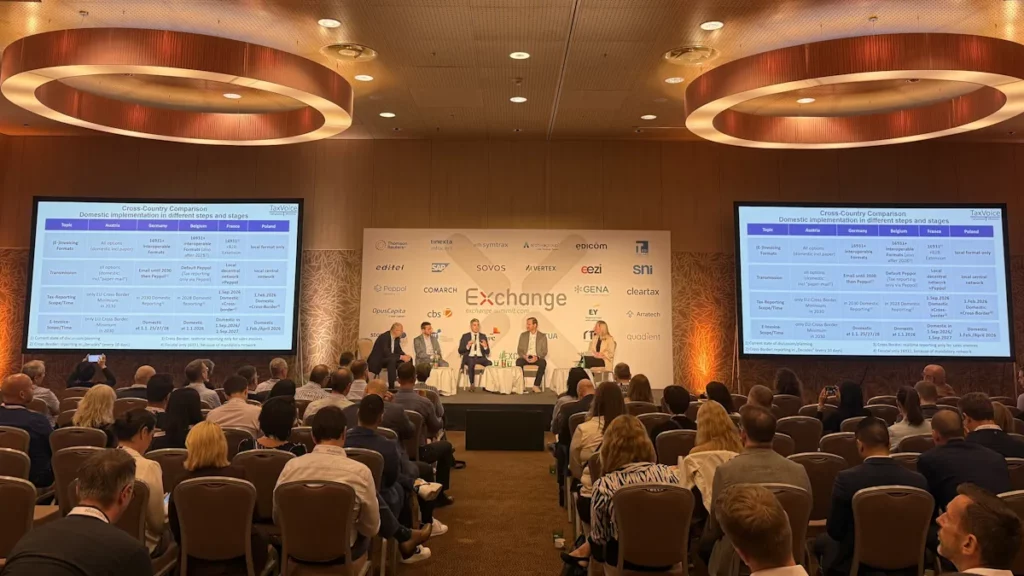
Beyond e-invoicing: what’s next?
Europe is still catching up with Latin America, where e-invoicing and digital reporting have been the norm for over a decade. What comes next is clear: governments will likely expand digitization far beyond invoices.
As Christiaan van der Valk (Sovos) shared, here are the next layers likely to appear in global mandates:
- E-Invoicing (in progress) – Digital invoices for compliance and reporting.
- E-Transport – Real-time tracking of goods in transit.
- E-Archiving – Secure, compliant long-term storage of documents.
- E-Ordering – Standardized digital exchange of purchase orders.
- Return / E-Assessment – Automated, pre-filled tax returns.
- E-Accounting – Real-time standardized electronic bookkeeping.
- Imports & Exports – Digitalized cross-border trade reporting.
- Withholding – Automated tax deductions at source.
- Trade Finance Anchor – Linking invoices to financing for faster liquidity.
- Payments – Real-time payments tied to invoicing and reporting.
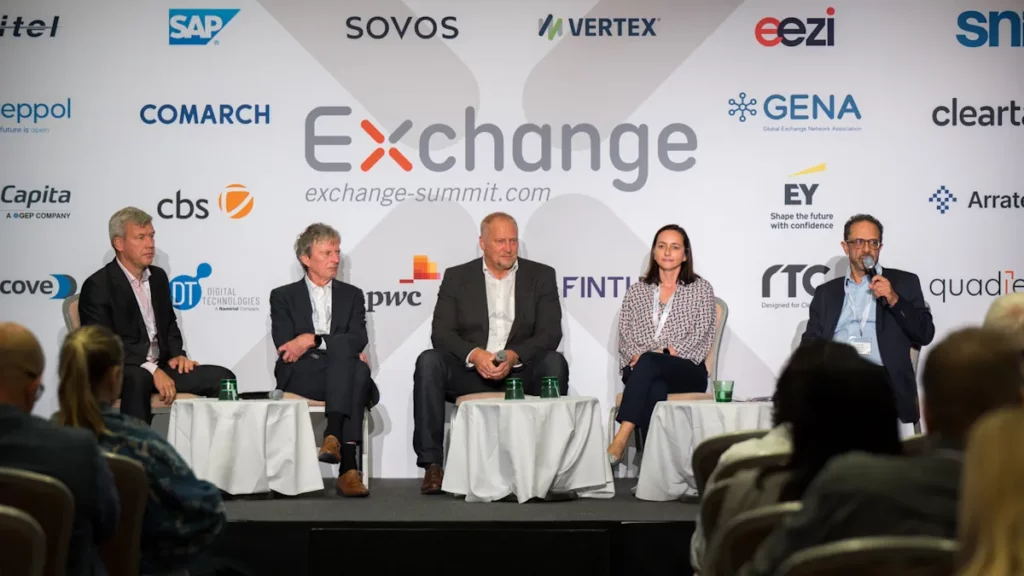
The usual recurring challenges
Several long-standing topics remain high on the agenda and were central to many sessions throughout the event:
- SMB adoption: Making e-invoicing accessible and affordable for small businesses.
- Interoperability & harmonization: Reducing the burden of adapting to multiple standards, with Peppol, EN 16931, and the ViDA directive moving things forward.
- Data quality & AI: High-quality invoice data is essential for unlocking automation and artificial intelligence.
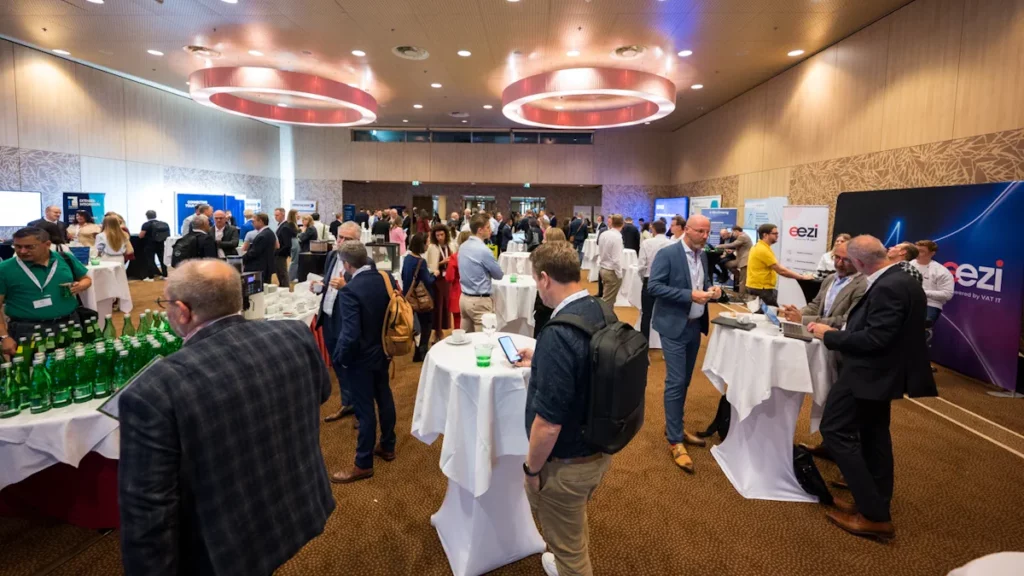
Looking ahead
The next European Exchange Summit will take place in Berlin in 2026. Before then, the Summit will head to Singapore (November 25–26, 2025) and Dubai (March 30–April 1, 2026).
Official website: E-Invoicing Exchange Summit
Want more background? Don’t miss our exclusive interview with Johannes von Mulert, the founder of the Exchange Summit, where we trace the origins of the event and its global impact.
